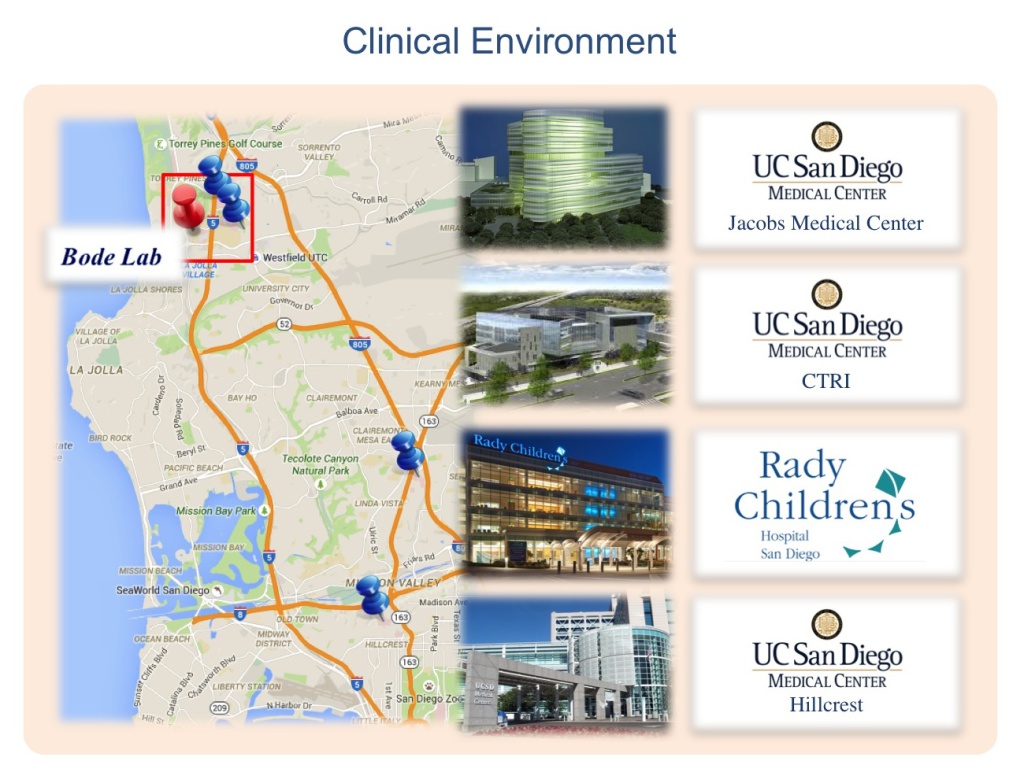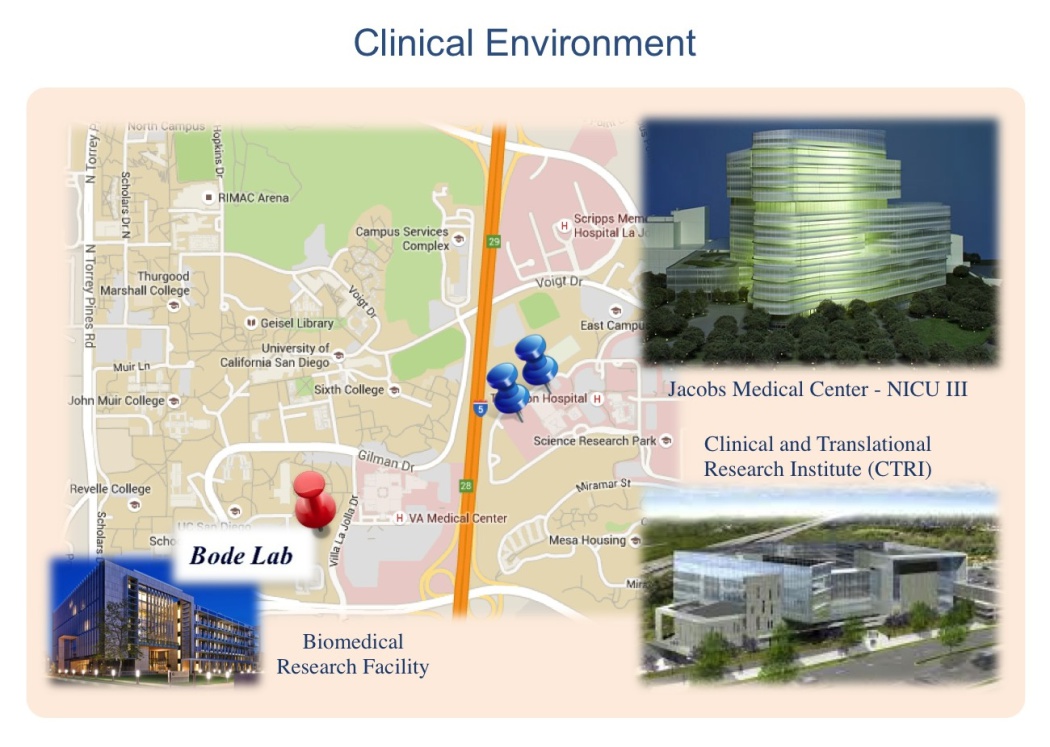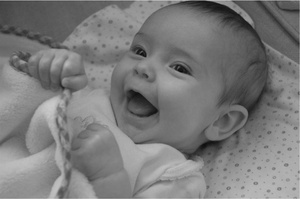
Clinical Environment
The University of California, San Diego (UCSD) and Rady Children's Hospital provide an outstanding environment to advance scientific discoveries from the lab to the bedside to tackle diseases and improve health.
The UCSD Medical Center and Rady Children's Hospital provide access to clinical specimens and opportunities for clinical observation and intervention studies. The Bode lab is part of the San Diego Human Milk Research Biorepository, and our clinical research is in part supported by the UCSD Clinical and Translational Research Institute (CTRI).
Continue reading below the charts for more information about CTRI and our Neonatal Intensive Care Units (NICUs).
Clinical and Translational Research Institute (CTRI)
The Bode lab is a member of the UCSD Clinical and Translational Research Institute (CTRI). Established in 2010, the CTRI provides infrastructure and support for basic, translational, and clinical research throughout the San Diego region; expedites the translation of discoveries into therapies; and facilitates the training and education of the next generation of researchers.
The CTRI provides assistance with proposal development, study design, regulatory issues and submissions, biostatistics and informatics, and offers ethics consultation, clinical trial coordination, genomics technologies, biorepository services, facilitation with an affiliated laboratory network, and training for medical students and early career investigators. More than 100 clinical trials are run through the CTRI every year.
The CTRI has several interactive functional areas that provide resources, services, and guidance: the Center for Clinical Research (CCR); Education, Training, and Career Development (ETCD); Biomedical Informatics (BMI); Community Engagement (CE); Translational Research Alliance (TRA); Translational Research Technology (TRT); and Evaluation.
Neonatal Intensive Care Unit (NICU)
The Division of Neonatology at UCSD provides care for critically ill neonates throughout the San Diego area. The largest and highest acuity NICU’s are located at UCSD Hillcrest Medical Center and nearby Rady Children’s Hospital. Importantly, a common Institutional Review Board covers clinical and translational research at both UCSD/Rady facilities, integrating the academic mission across the Department of Pediatrics.
The 49-bed Neonatal Intensive Care Unit (NICU) at the UCSD Hillcrest Medical Center is the only regional Level III NICU housed in the same facility as a high-risk Maternal-Fetal Medicine labor and delivery service. Over 100 patients born weighing less than 1,500 g are born and admitted each year. Clinical outcomes data is submitted to both the California Perinatal Quality Care Commission and the Vermont Oxford Network. Dedicated Neonatology clinical research staff support the many investigational, translational, and clinical trials conducted in the UCSD NICU.
The 32-bed NICU and adjacent 17-bed Cardiovascular Neonatal Intensive Care Unit at Rady Children’s Hospital are the only level IV NICU facilities in the San Diego area. Completely staffed by UCSD faculty, the Rady NICUs provide critically ill neonates with the highest level of intensive care, medical and surgical subspecialists, and extracorpuscular membrane oxygenation (ECMO). Patients are transferred to Rady
Children’s Hospital from throughout Southern California, the Southwestern United States, and Hawaii.
Multiple community level II and level III NICUs are managed as part of the Rady Children’s Hospital and completely staffed by UCSD Faculty Neonatologists. These units include the NICUs at Rancho Springs Medical Center (Murrieta, CA), Scripps Memorial Hospital (Encinitas, CA), Scripps Memorial Hospital (La Jolla, CA), Palomar Medical Center (Escondido, CA), and Pomerado Hospital (Poway, CA).




